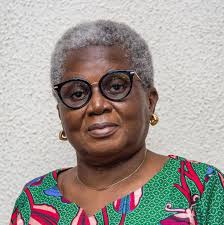
In the annals of Ghana’s turbulent political history, the events of May 15, 1979, stand out as a defining moment of chaos and resilience. This was the day armed men stormed the home of Jerry John Rawlings, a figure who would soon become synonymous with Ghanaian politics. What unfolded was not just a tale of coup and counter-coup; it was a narrative punctuated by bravery, intrigue, and the indomitable spirit of one woman: Elizabeth Ohene.
Rawlings was then a major in the Ghana Air Force and had already attempted a coup the previous year. His fervent vision of a new Ghana, free from corruption and mismanagement, garnered both admiration and fierce opposition. On that fateful day, however, an insurrection group, fueled by political discontent and dissatisfaction with the status quo, attempted to eliminate Rawlings under the cover of darkness.
As burning tires littered the streets of Accra, the atmosphere was thick with trepidation. Armed with weapons and an agenda of rebellion, the assailants stormed Rawlings’ residence, determined to carry out their mission. Fighting against the tide of violence and instability that had characterized Ghana’s governance, Elizabeth Ohene, a resolute journalist and political commentator, took a brave stand. She, along with a few others, witnessed the unfolding chaos and realized the gravity of the situation.
Ohene’s intervention was as spirited as it was courageous. Knowing the implications of a raw power struggle and how it could affect the lives of ordinary Ghanaians, she approached the aggressive group, refusing to cower in fear. Speaking firmly but calmly, she implored the armed men to reconsider their actions. She argued that the nation had suffered enough from military interventions and that their actions could plunge Ghana into further turmoil. Her words echoed as a rallying cry for peace and rationality in a moment that could have spiraled into further violence.
The men were momentarily taken aback by her fearless stance. In a country already marred by suspicion and conflict, this act of courage amidst chaos helped to pause a potential bloodbath. Although the coup attempt ultimately failed, Elizabeth Ohene’s emergence during those moments exemplified the power of diplomacy over violence, showcasing the pivotal role of women in peacebuilding processes.




